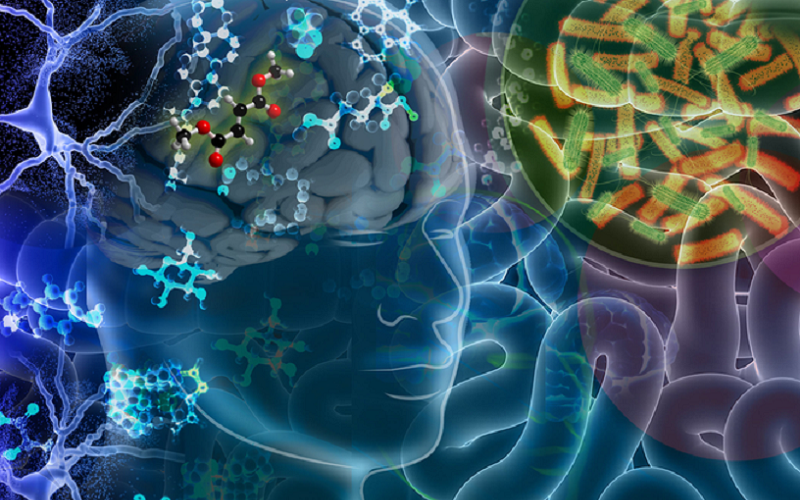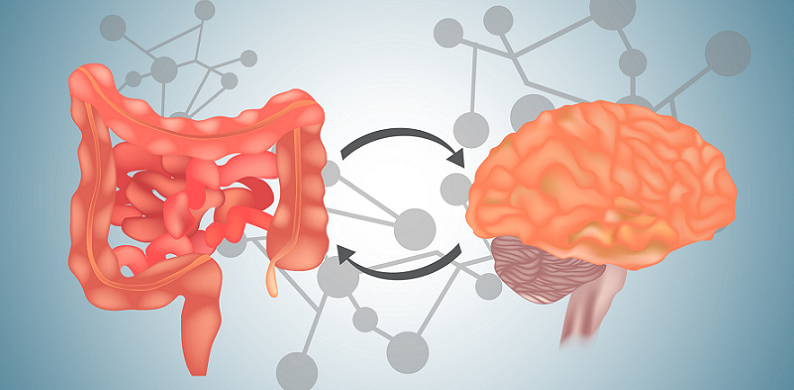
In the intricate ballet of hormones that orchestrates our body’s myriad functions, galantide plays a pivotal yet often underappreciated role. This remarkable peptide, a hybrid of two well-known hormones, gastrin and somatostatin, emerges as a key player in the complex interplay of our digestive and cognitive systems. Its dual influence on both gastric actions and memory processes presents a fascinating intersection of gastrointestinal and neurological health. From its impact on gastric secretions and motility to its potential implications in cognitive enhancement and treatment of memory-related disorders, galantide offers a unique window into the holistic understanding of bodily functions.
Contents
Understanding Galantide
Galantide, a peptide of significant interest in the realms of gastroenterology and neurology, offers a fascinating glimpse into the complex world of hormonal interactions. Before getting into its specific roles and functions, it is crucial to gain a comprehensive understanding of its nature, discovery, and place within the endocrine system.
Chemical Structure and Properties of Galantide
Galantide, a synthetic peptide, is an amalgamation of two naturally occurring hormones: gastrin, which is primarily involved in digestive processes, and somatostatin, known for its role in inhibiting various hormonal secretions. This hybrid structure endows galantide with unique properties, allowing it to interact with the receptors of both parent hormones. Its molecular design, characterized by specific amino acid sequences, enables it to bind with these receptors in a way that modulates their activities, thus influencing several physiological processes.
Discovery and Development History of Galantide
The journey to the discovery of galantide began in the late 20th century when researchers were exploring ways to manage gastrointestinal disorders and cognitive dysfunctions. The synthesis of galantide was a groundbreaking development, achieved by combining key elements of gastrin and somatostatin.
This innovation opened new avenues in medical research, particularly in understanding how hormonal modulation can impact various body systems. The development of galantide also marked a significant step forward in peptide therapeutics, offering a template for designing other hybrid hormones [1].
Galantide’s Role in the Endocrine System
In the tapestry of the human endocrine system, galantide plays a multifaceted role. By influencing both the gastrin and somatostatin receptors, it impacts several hormonal pathways. In the digestive system, it modulates gastric secretions and motility, helping to regulate processes such as digestion and nutrient absorption.
In the realm of cognitive function, galantide interacts with brain chemistry, potentially influencing memory formation and retrieval. This dual action positions galantide as a key mediator in the interconnectedness of the gut-brain axis, a relationship increasingly recognized as crucial in overall health and well-being.
Galantide and Gastric Functions
The role of galantide in the digestive system is as intricate as it is important. Its influence on gastric functions highlights the delicate balance within our body’s hormonal framework and its impact on our overall health.
Galantide’s Mechanism of Action in the Digestive System
Galantide’s mechanism of action within the digestive system is a fascinating display of biological regulation. By modulating the activity of its parent hormones, gastrin and somatostatin, galantide plays a crucial role in managing gastric secretions and the movement of the gastrointestinal tract [2].
Its ability to bind to the receptors of these hormones allows it to act as a regulatory agent, either stimulating or inhibiting gastric functions as required. This regulatory capability is particularly important in maintaining the balance of acid production and in controlling the rate at which food moves through the digestive tract.
Effects of Galantide on Gastric Secretions and Motility
The specific effects of galantide on gastric secretions and motility are significant. In terms of secretions, galantide can influence the release of gastric acid, essential for the digestion process. By modulating gastrin and somatostatin receptors, it helps in maintaining the optimal level of acidity in the stomach, preventing conditions like acid reflux or gastritis. Regarding motility, galantide affects the smooth muscle contractions in the gastrointestinal tract, thereby regulating the movement of food. This regulation ensures efficient digestion and nutrient absorption, preventing issues such as constipation or diarrhea.
Galantide’s Therapeutic Implications for Gastrointestinal Disorders
The potential therapeutic applications of galantide in treating gastrointestinal disorders are a promising area of research. Given its role in regulating gastric secretions and motility, galantide could be instrumental in managing various digestive conditions, such as irritable bowel syndrome (IBS), peptic ulcers, and gastroesophageal reflux disease (GERD) [3].
Its ability to modulate the digestive system at a hormonal level offers a novel approach to treatment, providing an alternative to traditional medications that often come with various side effects. The exploration of galantide in clinical settings could lead to more effective and targeted therapies for a range of gastrointestinal issues.

Galantide’s Role in Memory Processes
Beyond its significant impact on gastric functions, galantide also plays a fascinating role in the realm of cognitive health, particularly in memory processes.
Interaction of Galantide with Brain Hormones and Neurons
Galantide’s interaction with brain hormones and neurons is a testament to its versatility as a peptide. While its primary function involves modulating gastric actions, its influence extends to the neurological system. Galantide interacts with neurotransmitters and neural pathways that are crucial for memory and cognitive processes.
By binding to specific receptors in the brain, it can potentially affect the release and uptake of neurotransmitters that play a role in learning and memory. This interaction is key to understanding how galantide could influence cognitive functions, particularly in memory formation and retrieval.
Galantide’s Influence on Memory Formation and Retrieval
The influence of galantide on memory formation and retrieval is a subject of ongoing research. Preliminary studies suggest that galantide might have a role in enhancing memory processes. This is believed to be achieved through its ability to modulate neurotransmitter systems that are directly involved in the encoding and storage of memories [4].
Additionally, galantide might influence the synaptic plasticity – the ability of synapses to strengthen or weaken over time, which is essential for learning and memory. These aspects point towards a promising role for galantide in improving memory functions, potentially aiding in the treatment of memory-related disorders.
Potential of Galantide in Treating Cognitive Impairments
The potential of galantide in treating cognitive impairments, such as Alzheimer’s disease and other forms of dementia, is an exciting area of research. Given its possible role in enhancing memory processes, galantide could offer a novel approach to managing these conditions. Researchers are exploring whether galantide can be used to improve memory functions in those with cognitive impairments, offering hope for new treatment options.
This research is particularly important given the limited effectiveness and side effects of current treatments for these disorders. Galantide’s unique action on both gastric and cognitive functions positions it as a potential multi-faceted therapeutic agent in the realm of neurology.
The Dual Role of Galantide: A Balancing Act
Galantide’s unique ability to influence both the digestive and cognitive systems demonstrates a remarkable balancing act within the human body. Here we look into the synergistic effects of galantide on brain and gut health, the challenges it presents in modulating these functions, and the future directions this research might take.
Synergistic Effects of Galantide on Brain and Gut Health
The relationship between the gut and the brain, often referred to as the gut-brain axis, is a critical aspect of overall health. Galantide, with its dual action, serves as a bridge between these two systems. Its role in modulating gastric actions and memory processes illustrates a synergy that is pivotal in understanding the interconnectedness of our body’s systems.
For instance, the efficient functioning of the digestive system can influence cognitive health, and vice versa. Galantide’s ability to act on both fronts suggests its potential in treating conditions that involve both the gut and the brain, providing a holistic approach to health and well-being [5].
Challenges in Modulating Gastric and Cognitive Functions
While the dual role of galantide offers exciting possibilities, it also presents unique challenges. Modulating both gastric and cognitive functions simultaneously requires a delicate balance. One of the primary challenges is ensuring that the regulation of one system does not adversely impact the other.
For example, a concentration of galantide that is beneficial for cognitive functions might have unintended effects on the digestive system, and vice versa. Understanding and managing these complex interactions is crucial for the safe and effective application of galantide in therapeutic settings.
Future Research Directions for Galantide
The future of research in galantide’s dual role is filled with potential. Key areas of focus include understanding the precise mechanisms through which galantide affects both the gut and the brain, and how these effects can be optimized for therapeutic purposes. Another important aspect is the development of targeted delivery systems that can maximize the benefits of galantide in specific areas of the body.
Additionally, research will need to address the long-term effects of galantide use, ensuring its safety and efficacy over time. The exploration of galantide’s potential in personalized medicine, where treatments are tailored to individual patient needs, is another promising direction for future research.
References
[1] Galantide distinguishes putative subtypes of galanin receptors
[2] Galanin and its receptors in neurological disorders
[3] Galanin and Cognition
[4] Galanin
[5] Galanin receptors and ligands

